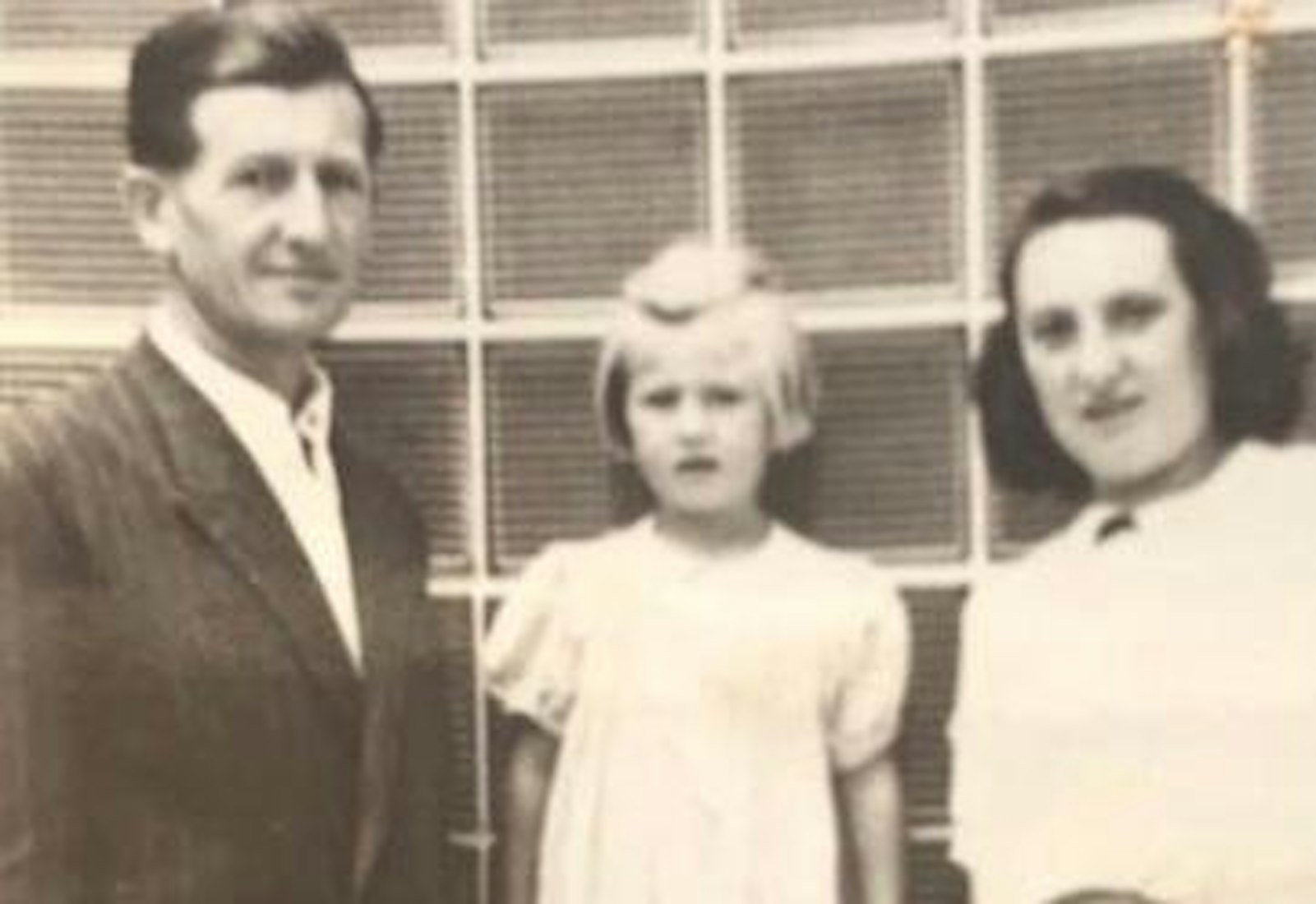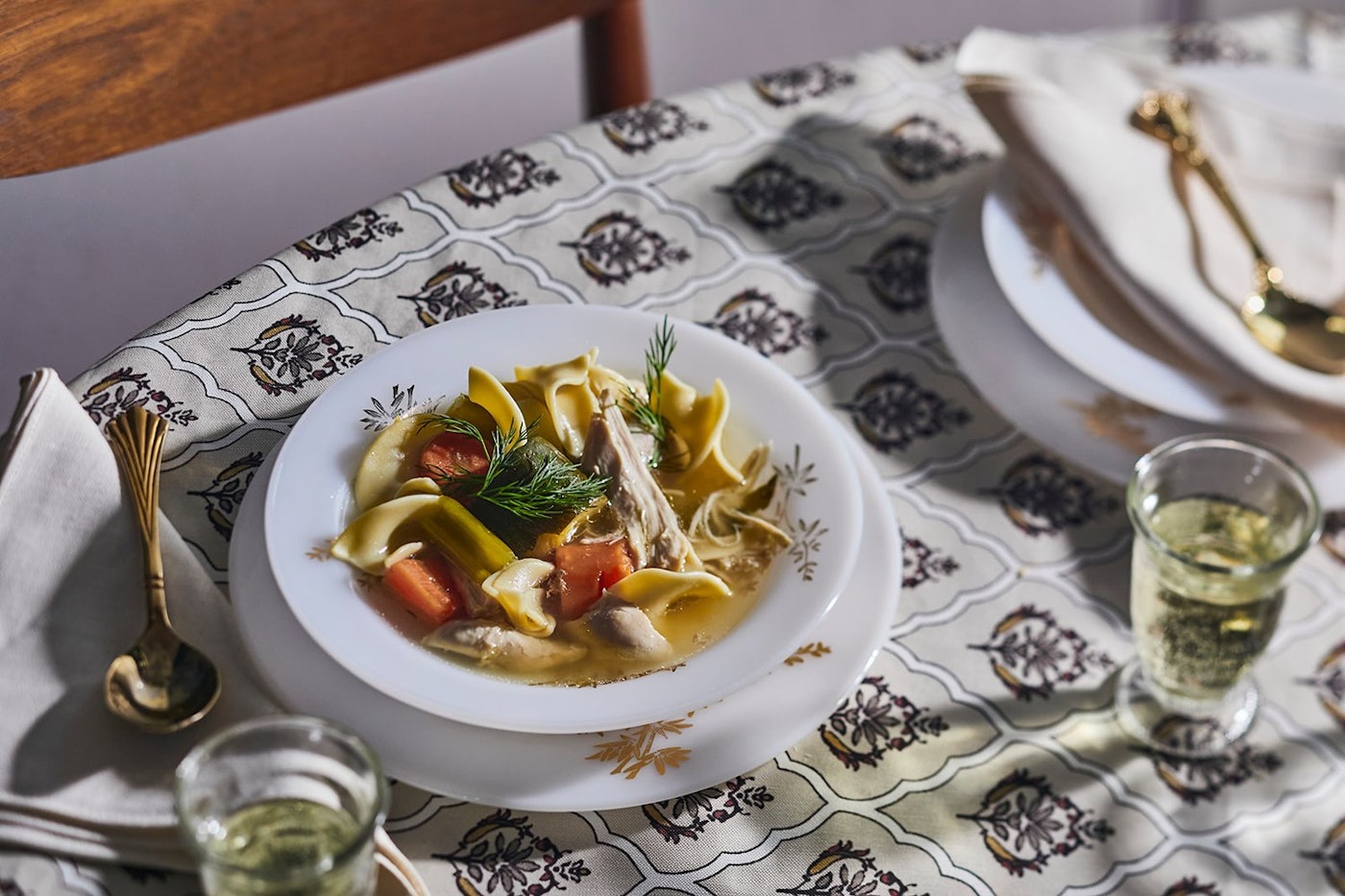Shared by Hagit Bilia

The dishes on beloved food blogger Hagit Bilia’s table in Tel Aviv are always changing. One day, there’s a salad of purple cabbage and ruby-red strawberries, another, silky eggplant slices studded with chili slivers, and a third, a large puff pastry pie filled with cauliflower. She describes her vegetable-forward approach to food as laid back Israeli, the type of cooking that isn’t confined to tradition or her Moroccan and German roots. If she doesn’t have a specific spice in the house — not to worry, says Hagit, who is best known by her cooking persona Liza Panelim.
That culinary philosophy is punctuated by what she calls a “traditional course” every Friday night. No matter the season, Hagit serves a Moroccan fish recipe from her father’s family and a chicken soup studded with carrots and zucchini from her mother’s. Hagit’s first learned to make the soup when she was 10 from her mother Sarah. Despite being a long time vegan, Sarah wanted Hagit to learn to make the family recipe. She taught her how to make it with noodles, while a cousin called “aunt” Pola showed her how to roll matzo balls for a different finish.
Hagit grew up with few relatives from her mother’s family, as many perished during World War II. Pola, who was a cousin of her grandfather Max, “was like my grandmother,” Hagit explains. She showed her how to form small meat-filled dumplings called vareniki, and how to make potato and flour mixture she called kigelach that she added to pots of the Shabbat stew cholent. The food was modest, even tinged with sorrow, reflecting the family’s past, Hagit says. But, it is also food that sustains that “really goes into your bones.”
When Pola was close to 80-years-old she traveled from Israel to Florida, where Hagit’s parents now live. The family prepared the chicken soup recipe for her because, “it always makes you feel at home,” Hagit explains. Pola sat down to a bowl and proclaimed “אַ-מְחַיֶיה” (a-mechaye), saying that the soup had revived her.
Today, back in Tel Aviv, when Hagit prepares the soup for her family of six, it’s unchanged from how she learned it. “I’m not trying to be creative [with] the traditional food. I want the tradition to be tradition,” she explains. “This is our story.”
It’s one of the recipes she’s taught her children to make and shared on her blog. Hagit adds: “I always tell my children, I have no money to give you, I just have all my recipes. That is your heritage.”
